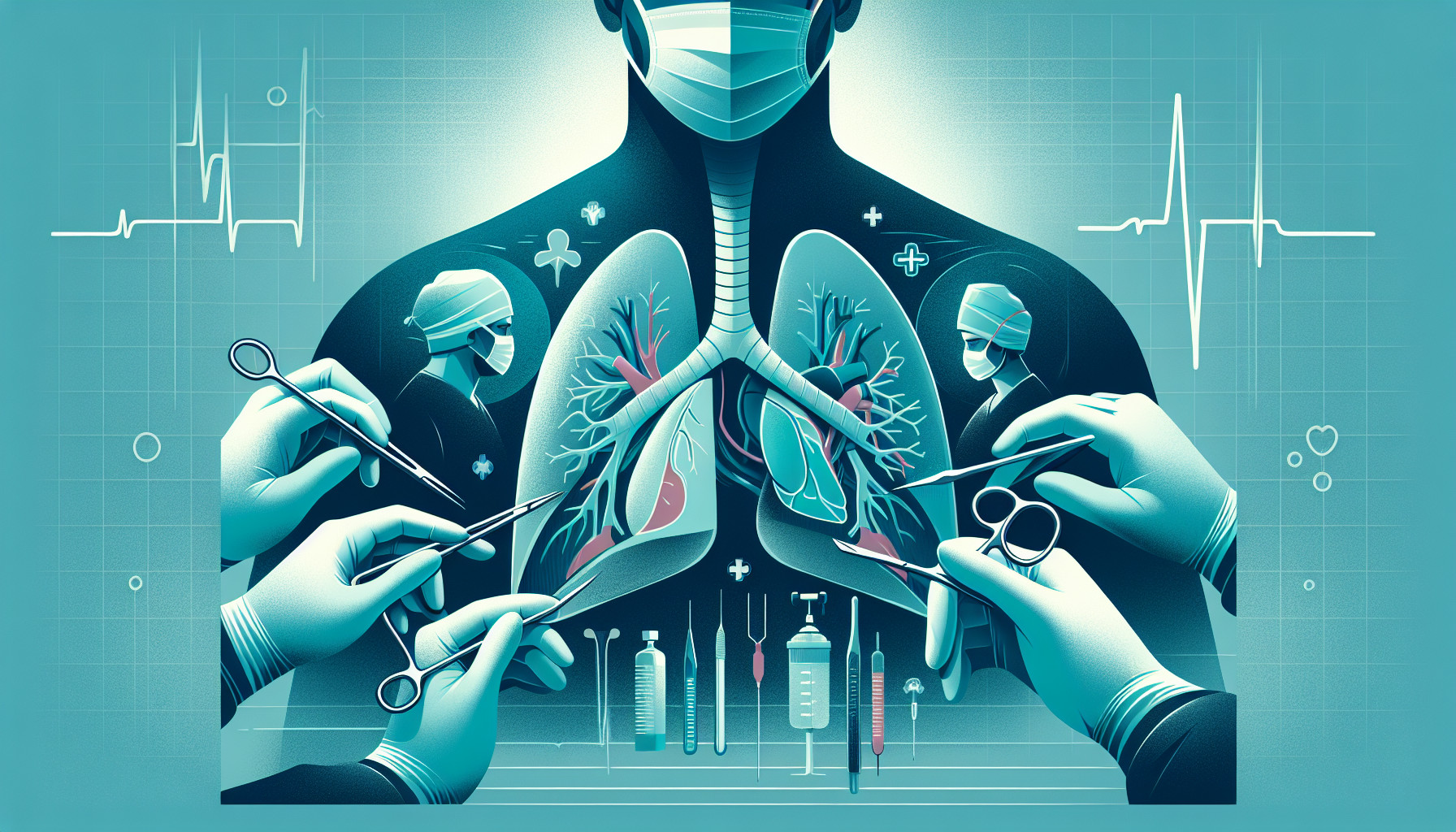Our Summary
This study looks at the usefulness of a specific type of lung biopsy, known as trans-bronchial forceps biopsy (TBFB), in diagnosing ongoing lung problems in patients who have had COVID-19. The research specifically focuses on a condition known as organizing pneumonia (OP) and patients with weakened immune systems.
Researchers looked back at 27 cases where this type of biopsy was done on patients who had unusual findings on their lung CT scans after recovering from COVID-19. They found that all the samples showed changes in the small air sacs in the lungs, and 44% of the patients were found to have OP.
Most of the patients (78%) were treated with steroids, including 92% of those with OP, and had good outcomes at discharge, especially those with OP (92%).
The results suggest that TBFB can be useful in diagnosing ongoing lung problems after COVID-19, particularly in patients with weakened immune systems. However, the researchers emphasize that larger studies are needed to confirm these results and to better understand the best way to use steroids in treating these patients.
FAQs
- What is the purpose of a trans-bronchial forceps biopsy (TBFB)?
- How effective was TBFB in diagnosing organizing pneumonia (OP) in patients who had recovered from COVID-19?
- What is the suggested treatment for patients diagnosed with OP after recovering from COVID-19?
Doctor’s Tip
A helpful tip a doctor might give a patient about lung biopsy is to follow all pre-procedure instructions provided by the medical team, such as fasting before the procedure or stopping certain medications. It is also important to inform the medical team about any allergies or medical conditions before the procedure. After the biopsy, it is essential to follow post-procedure care instructions, such as taking prescribed medications and monitoring for any signs of infection or complications. It is important to communicate any concerns or questions with the medical team to ensure the best possible outcome.
Suitable For
Patients who may be recommended for a lung biopsy include those with:
- Suspicious or abnormal findings on imaging studies, such as chest X-rays or CT scans, that cannot be definitively diagnosed through other methods.
- Symptoms of lung disease, such as persistent cough, shortness of breath, chest pain, or unexplained weight loss.
- Suspected lung infections, tumors, or other abnormalities that require further investigation.
- Chronic lung conditions, such as chronic obstructive pulmonary disease (COPD), interstitial lung disease, or pulmonary fibrosis, that are not responding to treatment.
- Autoimmune diseases affecting the lungs, such as sarcoidosis or granulomatosis with polyangiitis.
- Monitoring of known lung conditions for progression or response to treatment.
- Evaluation of lung nodules or masses found on imaging studies.
It is important for healthcare providers to carefully assess each patient’s individual situation and determine if a lung biopsy is necessary to accurately diagnose and treat their condition.
Timeline
- Patient experiences ongoing lung problems after recovering from COVID-19, leading to unusual findings on lung CT scans.
- Patient undergoes trans-bronchial forceps biopsy (TBFB) to further investigate the lung issues.
- Biopsy samples show changes in small air sacs in the lungs, with 44% of patients diagnosed with organizing pneumonia (OP).
- Majority of patients (78%) are treated with steroids, with 92% of those with OP receiving steroid treatment.
- Patients show good outcomes at discharge, especially those with OP (92%).
- Results suggest that TBFB can be useful in diagnosing ongoing lung problems post COVID-19, particularly in patients with weakened immune systems.
- Larger studies are needed to confirm these findings and determine the best treatment approach for these patients.
What to Ask Your Doctor
Some questions a patient should ask their doctor about lung biopsy for ongoing lung problems after COVID-19 may include:
- What is a trans-bronchial forceps biopsy (TBFB) and why is it being recommended for me?
- What specific information can a TBFB provide about my lung condition after recovering from COVID-19?
- What are the risks and potential complications associated with undergoing a TBFB?
- How will the results of the biopsy impact my treatment plan?
- Will I need to take any medications or undergo additional procedures based on the biopsy results?
- How long will it take to receive the results of the biopsy?
- Are there any lifestyle changes or precautions I should take before or after the biopsy procedure?
- Are there any alternative diagnostic options available besides a lung biopsy?
- What are the potential long-term effects of my lung condition and how can it be managed?
- Are there any clinical trials or research studies that I may be eligible to participate in related to ongoing lung problems after COVID-19?
Reference
Authors: Kleymann J, Brückmann S, Langner S, Koschel D, Kolditz M. Journal: BMC Pulm Med. 2024 Dec 23;24(1):631. doi: 10.1186/s12890-024-03449-0. PMID: 39716184
